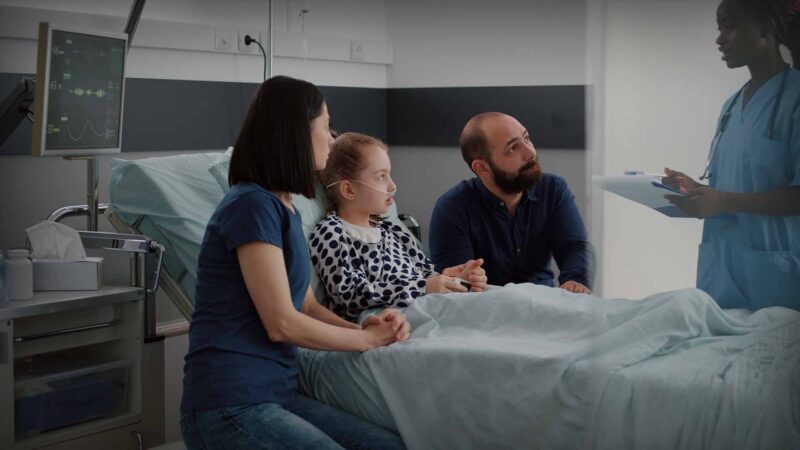PHARMACIST PRESCRIBING MODEL GETS FURTHER SUPPORT FROM STATE HEALTH Training rolls out to support full scope of practice for pharmacists ready and interested
With
Kate Gunthorpe,
Pharmacist Implementation & Change Specialist
TerryWhite Chemmart &
Adjunct Lecturer & Examiner
James Cook University &
Pharmacist Prescriber,
Brisbane Metro, Rural and Regional
Esmond Biesiek-Wright, Pharmacist & Network Partner,
TerryWhite Chemmart Compounding Ainslie (ACT)
EARNED MEDIA SEGMENT
Filmed in Brisbane & Canberra | September 2025
Legislative and regulatory changes following the success of the pharmacist prescriber model in Queensland are continuing with NSW Premier Chris Minns in early September 2025 announcing additional training centres from 2026, making permanent pharmacist treatment for certain dermatological conditions and outlining plans to assess pharmacists prescribing antiviral medications for influenza.
A full scope pharmacist prescriber model allows pharmacists to independently prescribe medicines within their professional competence, without requiring prior doctor authorisation. It extends pharmacists’ role beyond dispensing to include assessment, diagnosis of minor and chronic conditions, initiation and modification of therapy, and ongoing patient monitoring. This model integrates pharmacists into primary care teams, aiming to improve timely access to treatment, reduce pressure on general practitioners, and enhance continuity of care. Pharmacists use their clinical knowledge, patient records, and collaborative pathways to ensure safe prescribing. The model emphasises training, regulation, and accountability to maintain high standards of patient safety.
Pharmacist prescribing plays a crucial role in alleviating the pressure on emergency services and general practitioners, allowing pharmacists to enhance their skills and job satisfaction while welcoming more pharmacy students into the workforce for fulfilling careers. Kate Gunthorpe, an Implementation and Change Specialist at TerryWhite Chemmart and a pharmacist prescriber serving Brisbane and its surrounding areas, points to a pilot program established in Far North Queensland that were the origins of the model. This initiative permitted pharmacists to autonomously prescribe for 22 common acute conditions without the need for GP intervention.
At present, Queensland stands at the forefront of full-scope pharmacist prescribing, with Northern Territory and Western Australia beginning educational programs to support this practice. Other regions, including Victoria, Tasmania, and South Australia, are developing similar programs, while Australian Capital Territory is expected to follow suit shortly in early 2026.
Esmond Biesiek-Wright, a partner pharmacist at TerryWhite Chemmart Compounding Ainslie, spoke to Australian Health Journal. He emphasises the importance of fostering collaboration with GPs, noting a shift from transactional interactions to more collegial relationships, to support the patient needs.
Since beginning her training for pharmacist prescribing through James Cook University, Kate is dedicated to ensuring her community benefits from these advancements and is optimistic about the future of pharmacist prescribing across Australia, promoting better health outcomes for all.
Source: Written by AUDIENCED
You Might also like
-
Enriching experiences in nursing mentorship
Mentoring in nursing is crucial for the development of nurses and the advancement of the nursing profession. It provides a supportive environment for personal and professional growth, knowledge transfer, and leadership development.
Australian Health Journal met with two nurses both working in Queensland, one the mentor, the other, the mentee. Both get to appreciate the experiences mentorship gives them.
-
Shaping Health, Advancing Nursing through training, upskilling & scholarships
The Chief Executive Officer of Australian College of Nursing, Adjunct Professor Kylie Ward FACN spoke in depth with Australian Health Journal about:
The key recommendations in ACN’s pre-budget submission to Federal Government
The impact of legislation requiring a Registered Nurse (RN) at every residential aged care facility from 1st July 2023
Why scholarships in nursing leadership are important
Why ACN has recommended the Government fund 200 Pacific nurses in 15 nations for the online ACN postgraduate certification
The need for a multi-pronged approach that includes skilled migration in rebuilding the nursing workforceIn the lead up to the Australian Federal Budget in May 2023, Australian Health Journal reached out to peak health industry bodies to hear about their priorities, either noted in pre-budget submissions lodged with Federal Government in January 2023 or in recent forums such as the Strengthening Medicare Taskforce.
-
Success in WA pilot to observe babies showing delays in social interaction & communication development
Inklings – led by The Kids Research Institute Australia – is a program for babies aged 6-18 months whose communications skills are developing differently to expected milestones. In early 2025 it has completed the first year of a pilot program.
At the time of filming (Nov 2024), Inklings has received more then 300 enquiries across WA and started to deliver services to 160 children, with almost 60 who have completed the program.



